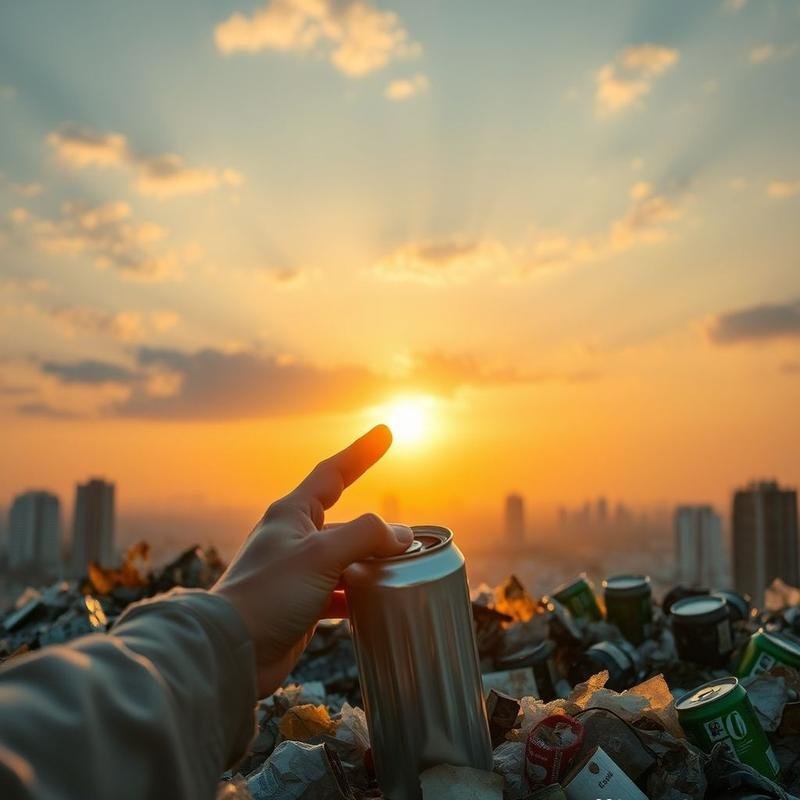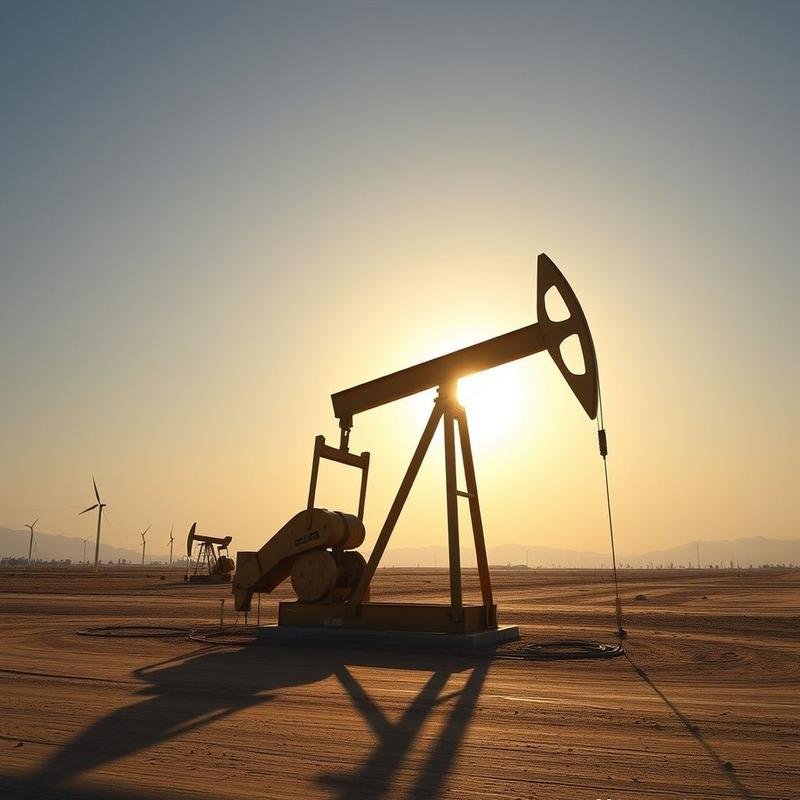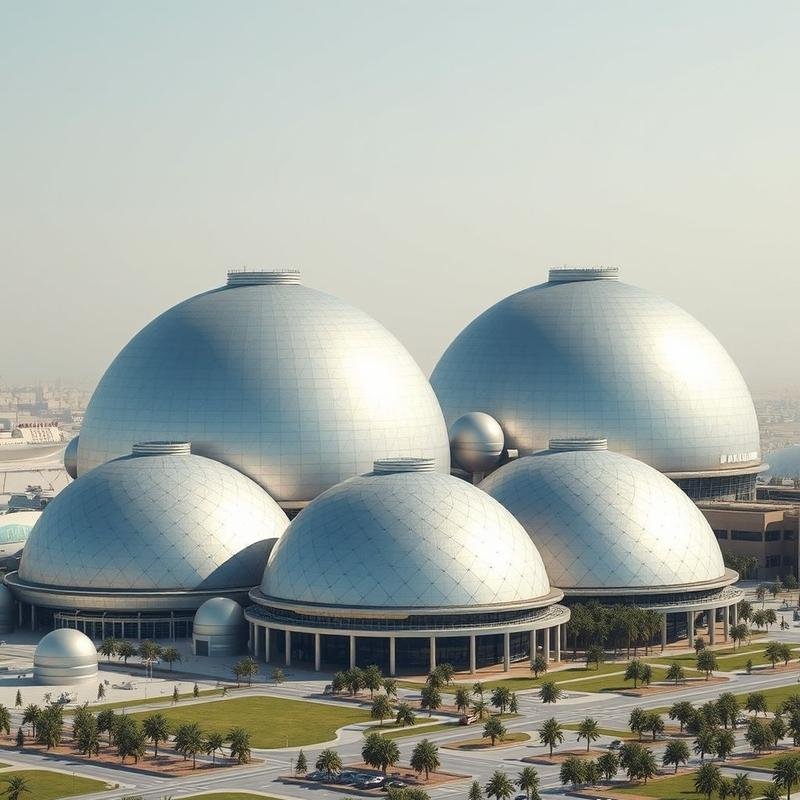Oil from Trash! A Vision for Clean Energy’s Future in the Arab World.

Waste-to-Energy: Clean Energy for the Arab World
Could waste be a valuable resource? While the question may seem improbable, the vast quantities of refuse accumulating in landfills present a potentially transformative solution to the energy challenges facing the Arab world. Imagine discarded materials being converted into fuel for vehicles and power for cities. Is this a futuristic concept or the dawn of an industrial revolution?
This episode explores the technology of waste-to-energy conversion, examining its potential to transform regional environmental and economic challenges into promising opportunities. Our journey begins in a landfill and culminates at advanced power generation facilities. Before we proceed, we invite you to share your perspectives: do you believe waste can truly be a valuable resource? Please subscribe to the channel and share your comments; your insights are important to us.
The Pyrolysis Process: Transforming Waste into Resources
Envision a sophisticated system meticulously breaking down waste, rather than incinerating it. At the core of the pyrolysis process, discarded materials are transformed into valuable resources. Pyrolysis is the precise decomposition of organic materials using intense heat in an oxygen-free environment. Temperatures ranging from 300 to 900 degrees Celsius are sufficient to break the atomic bonds within the waste. This process yields three valuable outputs: bio-oil, a promising substitute for crude oil that can be used directly as fuel or refined into gasoline and diesel; biogas, a clean and sustainable energy source suitable for powering factories and homes; and biochar, a carbon-rich solid material with applications as a fertilizer for agricultural lands or as an environmentally sound fuel. This process can reduce waste volume by up to 90%, significantly reducing landfill requirements.
Economic Viability and Regional Commitment
Let’s examine the economic viability of this transformation. While the cost of producing a barrel of oil in some regional countries may appear low, this figure represents only a partial assessment. Establishing an integrated waste-to-fuel plant requires a substantial initial investment, but this investment offers the potential for significant returns. The Gulf states alone generate over 150 million tons of waste annually. Regional and international partnerships demonstrate a clear commitment to exploring these technologies.
Infrastructure Challenges and Long-Term Benefits
However, the primary challenge lies in developing the necessary infrastructure. An efficient waste collection and sorting system remains an obstacle in many Arab countries. While the cost of producing a barrel of oil from waste may not be competitive at current market prices, the long-term environmental and economic benefits offer the potential for gains that outweigh these challenges. The future presents promising opportunities, and we must prepare to capitalize on them.
Addressing Environmental Concerns
Exploring these technologies opens up vast possibilities, but the most significant challenge remains the development of a robust and efficient infrastructure. Waste-to-fuel processes require a sophisticated collection and sorting system, which currently presents a significant obstacle in many Arab countries. While the cost of producing a barrel of oil from waste may seem uncompetitive at current prices, the long-term environmental and economic benefits hold the promise of substantial gains that outweigh these apparent challenges. The future holds promising opportunities, so let’s be ready to seize them. However, the fundamental question remains: is this solution truly promising, or does it simply replace one problem with another?
The International Energy Agency estimates that producing oil from plastic could reduce carbon dioxide emissions by up to 80% compared to incineration. However, other studies caution that these processes may generate hazardous pollutants. Are we simply shifting from one environmental problem to a more complex one? Perhaps, but there is reason for optimism. By 2040, with projected increases in regional waste production, the need for innovative and transformative solutions will become increasingly critical.
Regional Initiatives and Investments
The United Arab Emirates, for example, is investing significantly in this sector, with a large-scale project designed to process millions of tons of solid waste annually, transforming a challenge into an opportunity. Saudi Aramco has also invested in companies specializing in plastic-to-oil conversion, signaling positive momentum. These strategic investments, coupled with ambitious initiatives, have the potential to create thousands of new jobs.
Conclusion: A Sustainable Future
In conclusion, while global waste production is increasing at an alarming rate, waste-to-fuel technologies offer a promising avenue for progress. Imagine advanced facilities that reduce waste volume by up to 90%, the production of sustainable aviation fuel within the region, and a significant reduction in greenhouse gas emissions. Are there challenges? Undoubtedly. However, with ambitious and pioneering initiatives and confident leadership from environmental stakeholders, a sustainable future appears increasingly attainable.
This exploration reveals that converting waste into energy is not merely a theoretical concept, but a viable solution to the energy and environmental challenges facing the Arab world. It represents an investment in a sustainable and prosperous future and an opportunity to transform challenges into valuable opportunities.
Now that we have jointly examined the potential of waste-to-energy conversion, we invite you to share your perspectives: do you believe this technology can drive a genuine transformation in our region? Share your opinions and expectations in the comments, as our future depends on our collective ideas and initiatives.










